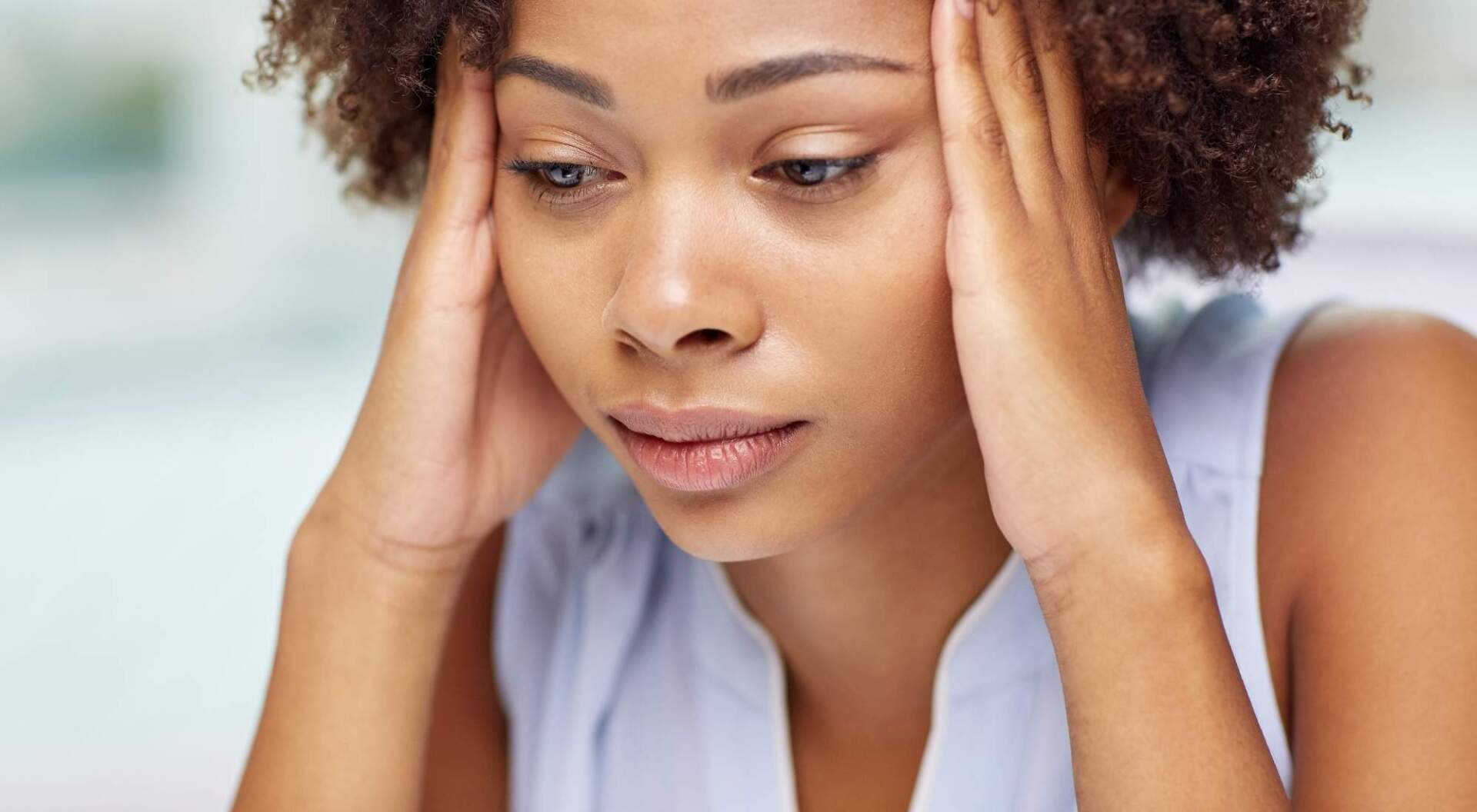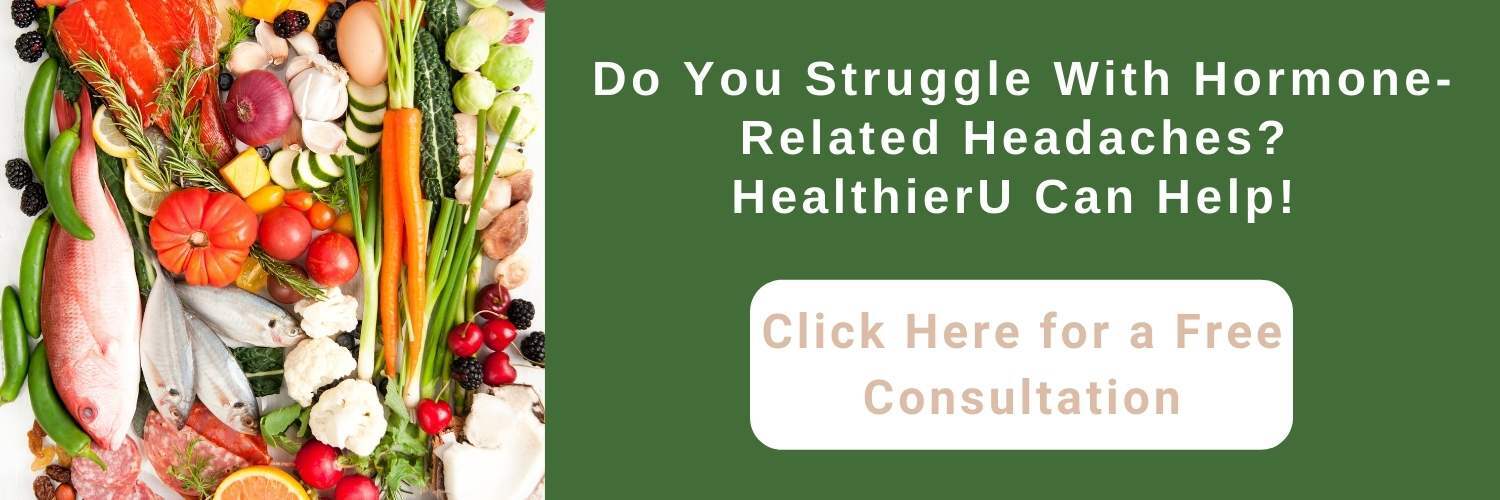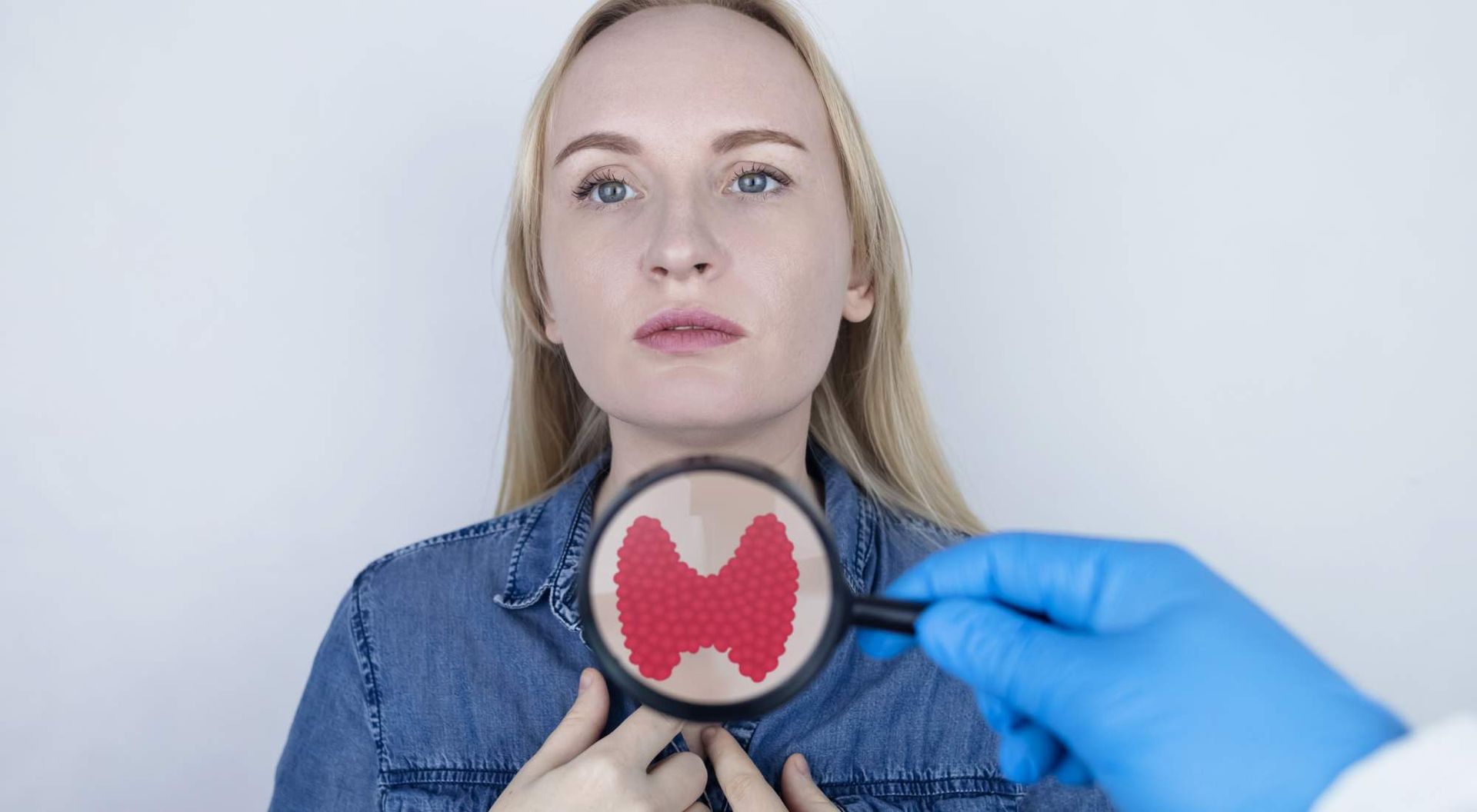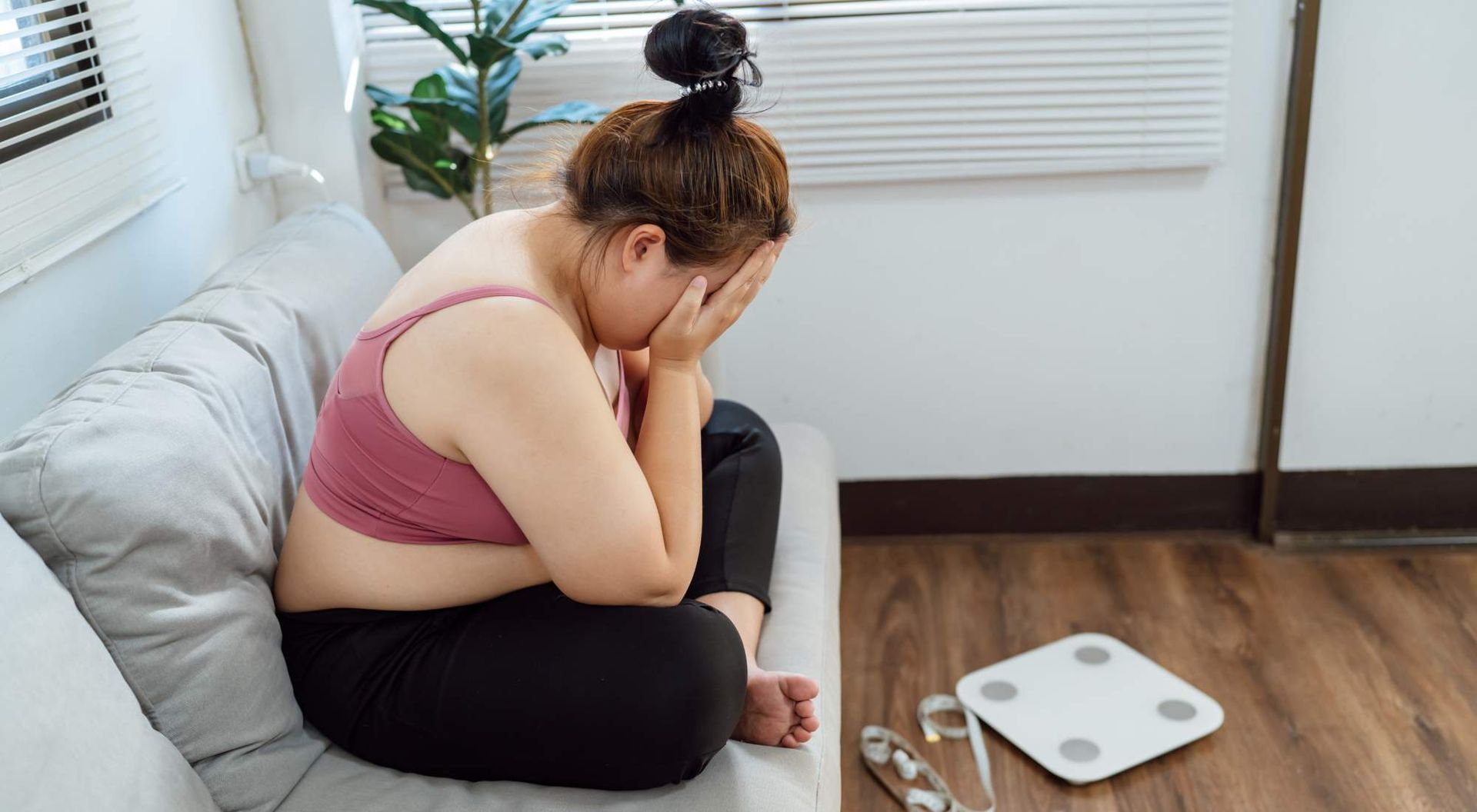Hormone Imbalance Headaches: Symptoms, Causes, Treatments, and More
"The content below is not intended to be a substitute for professional medical advice, diagnosis, or treatment. Always seek the advice of your physician or other qualified health provider with any questions you may have regarding a medical condition."
It’s getting close to that time of the month again and you are experiencing unbearable headaches.
These headaches could be due to hormone imbalances.
But don’t worry. There are several treatment methods that can help reduce your symptoms and frequency of headaches.
In this guide, we will discuss:
- The signs and symptoms of hormonal imbalance headaches
- Treatment options that are available to you; and
- How HealthierU can help
Table of Contents
Can Hormone Imbalance Cause Headaches?
One in four women experience migraines. In general, women are three times more likely to experience headaches than men.
Why?
Many headaches experienced by women are caused by hormonal fluctuation, which can happen at varying stages in a woman’s life, specifically during the menstrual cycle.
Below, we will explore how hormone imbalance causes headaches in women.
How Do Hormones Cause Headaches?
A key player in hormone imbalance headaches in women is the hormone estrogen. Estrogen can interact with chemicals in the brain that are responsible for creating the sensation of pain.
Steady levels of estrogen can keep headaches at bay while sudden drops in estrogen can trigger headaches.
Hormone levels can fluctuate for a variety of reasons, including:
- Your menstrual cycle
- Pregnancy
- Oral contraceptives or hormone replacement therapies
- Menopause and perimenopause; and
- Other hormonal headache triggers
During Your Menstrual Cycle
Your menstrual cycle plays an effect on estrogen levels in your body.
Have you ever known you were about to start your period based on having headaches at a certain time of the month? You can thank your estrogen levels.
Before you begin to menstruate, the estrogen levels in your body drop, which can trigger headaches.
Many women experience headaches during or just before they start their period.
During Pregnancy
In early pregnancy, estrogen levels rise rapidly and remain high throughout the duration of your pregnancy. The elevation of estrogen during this time can prevent hormone imbalance headaches.
However, the same can’t be said for tension headaches.
If you experience chronic headaches during your pregnancy, be sure to check with your doctor before taking any medication, as some headache medications can be harmful or have unknown effects on your developing baby.
From the moment you deliver your baby, estrogen levels in the body begin to dramatically decrease, which can trigger hormone imbalance headaches.
From Birth Control
Birth control methods like …
- Oral contraceptives
- Vaginal rings
- Implants
- Shots
- Patches
- And more
… can affect hormone imbalance headaches.
Some birth control methods can improve hormone imbalance headaches, while others may worsen them.
For some, specific birth control options can help reduce the frequency and severity of hormone imbalance headaches by minimizing the drop of estrogen levels that occur during the menstrual cycle.
Typically, birth control is a good option for women who have:
- Not seen improvement with other hormonal headache prevention methods; and
- Do not experience migraines
On the other hand, some women may experience hormone imbalance headaches while taking birth control, which can be limited to the first cycle.
It’s important to always consult with your doctor about options available to you.
During Perimenopause
Many women in the perimenopause stage experience hormone-related headaches.
Hormone imbalance headaches can become more frequent or severe during perimenopause due to the uneven rise and fall of hormones as your body prepares for menopause.
During Menopause
Once your body reaches the menopause stage, you may notice you have less migraines and headaches. In fact, two-thirds of menopausal women say their hormone imbalance headaches improved after reaching menopause.
This is due to the lack of variation in sex hormone levels caused by the absence of menstruation.
Other Hormonal Headache Triggers to Be Aware Of
Fluctuation in hormones isn't the only possible trigger for headaches in women.
Make sure you are exacerbating your symptoms by avoiding these other headache triggers:
- Skipping meals or eating too little
- Getting too much or not enough sleep
- Consuming alcohol, especially red wine
- Consuming too much caffeine or having caffeine withdrawal
- Stress
- Monosodium glutamate (MSG)
- Soy products
- Aged cheeses
- Processed foods
- Artificial sweeteners
- And more
Symptoms of Hormone-Related Headaches
Hormone imbalance headaches are similar to regular headaches and migraines and can be preceded with or without an aura.
Common signs and symptoms of hormone imbalance headaches include:
- Throbbing pain on one side of the head
- Nausea and vomiting
- Sensitivity to light
- Fatigue
- Loss of appetite
- Decreased urination
- Acne
- Joint pain
- Constipation
- Lack of coordination
- Cravings for salt, chocolate, or alcohol
- And more
Treatments for Hormone Imbalance Headaches
There are a variety of treatments for hormone imbalance headaches that you can try. You may need a combination of treatments to help ease your symptoms.
It is important to note that your body is unique and what works best for you may not be the same for everyone. Some women are more sensitive to hormonal changes than others.
Let’s take a look at some of the treatment options that are available to you.
Medications
Most medications for hormone imbalance headaches focus on addressing acute symptoms. Non-steroidal anti-inflammatory medications (NSAIDs), like ibuprofen, may be recommended for treating pain associated with these headaches.
Triptans, which are migraine-specific medications that can help block pain receptors in the brain, may also be recommended by your doctor.
If you experience frequent hormone imbalance headaches, your doctor may prescribe you medication to be taken routinely as a preventative measure.
Some examples of medications that may be prescribed include:
- Anticonvulsants
- Beta blockers
- Calcium channel blockers; and
- Antidepressants
At-Home Treatments
There are many natural remedies for hormone imbalance headaches that you can try at home. The sooner you begin to treat your headache, the sooner it may go away.
Here are some at-home treatment methods that may help decrease your hormone imbalance symptoms:
- Stay hydrated and drink plenty of water. You can also supplement your water intake with drinks high in electrolytes like Gatorade or Pedialyte.
- Lie down in a dark, quiet room. Try to relax and take a nap if you can.
- Place a cold compress on the area you feel pain for 20 minutes at a time to help relieve pain.
- Massage the area of your head where you feel pain.
- Try deep relaxation exercises like meditation or deep breathing.
Hormone Therapy
When preventative medications and other treatment options are unsuccessful, your doctor may recommend hormone therapy.
Women experiencing perimenopause are typically prescribed estrogen patches or pills to help level out their estrogen levels, as women can experience a hormonal roller coaster during this time that can trigger headaches.
For women who have not yet reached the perimenopause stage but still experience frequent hormone imbalance headaches, your doctor may prescribe birth control pills to help reduce the frequency of hormonal headaches.
If you are already taking a form of hormonal contraceptive and still experiencing frequent hormone imbalance headaches, your doctor may recommend switching you to a different medication that includes a lower dose of estrogen.
If you are taking birth control pills, your doctor may advise you to skip the last week of your pack, which includes the hormone-free placebo pills.
Note: It is important to not make any changes in your medications without the guidance and consultation of your doctor.
Nutrition and Lifestyle
Nutrition and lifestyle changes can be one of the easiest and most-effective remedies and prevention methods for hormonal imbalance headaches.
At HealthierU, we are experts in nutrition and women’s health.
We can help develop a customized nutrition plan to address your specific food triggers and hormone imbalances so you can experience relief from hormone imbalance headaches.
Find and Eliminate Food Triggers
It's important to identify and eliminate food triggers that could be exacerbating your hormone imbalance headaches. Some women find it helpful to keep a food journal to discern which foods in their diet seem to contribute to their severity and frequency of headaches.
Food triggers can also be identified through Nutrition Response Testing, which can be performed by Dr. Sergi at HealtherU.
Common food triggers include:
- Processed dairy and meat products
- Caffeine
- Alcohol
- Chocolate
- Artificial sweeteners
- And more
Eat Foods High in Estrogen
Incorporating foods that are high in estrogen can help combat low estrogen levels that trigger your hormone imbalance headaches.
Some foods high in estrogen include:
- Decaf coffee
- Pomegranate
- Yams
- Lentils
- Flaxseed
- Apples
- Carrots
- And more
Exercise
Exercise can help increase cortisol and adrenaline levels in the body, which can help fight off pain from hormonal imbalance headaches.
Plus, it’s always a good idea to implement exercise into your regular routine for general health benefits.
Take Supplements
Some supplements have been known to decrease hormone imbalance headache symptoms and frequency.
For example, the anti-inflammatory properties in magnesium can help block pain signals in the brain and alleviate pain caused by hormone imbalance headaches.
Learn about more
supplements that can help naturally alleviate your hormone imbalance headache symptoms.
Preventing Hormone Imbalance Headaches Before They Start
A huge component of preventing hormone imbalance headaches is to know what is triggering your headaches in the first place.
Keeping track of your…
- Menstrual cycle
- Sleep
- Exercise; and
- Diet
… can help identify triggers so you can avoid certain behaviors and implement the most effective treatment methods for your symptoms.
Always be sure to consult with your doctor before beginning any treatment for your hormone imbalance headaches.
Your doctor should also be able to help you figure out which treatment options may be best for you.
Struggling with Hormone Imbalance Headaches? Find Relief With a Holistic, Personalized Approach at HealthierU
If you are struggling with hormone imbalance headaches, Dr. Sergi at HealthierU can help.
As an expert in women’s health, Dr. Sergi treats many patients that experience hormone imbalance headaches.
Oftentimes, women can be increasing the frequency of their hormone imbalance headaches without even knowing it through their diet.
Through Nutrition Response Testing and nutritional guidance, Dr. Sergi can help identify foods that are triggering your hormone imbalance headaches and help you incorporate more foods into your diet that can help prevent or reduce the frequency of your headaches.
Book a consultation today to start getting answers and experiencing relief.






